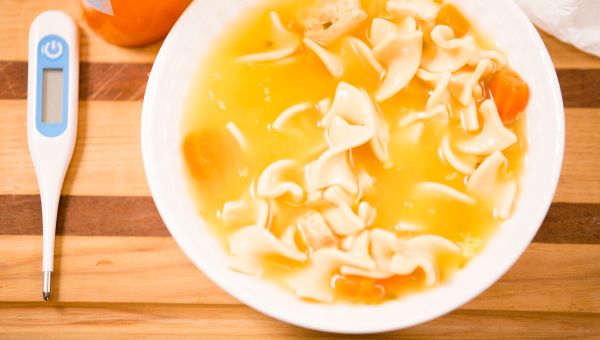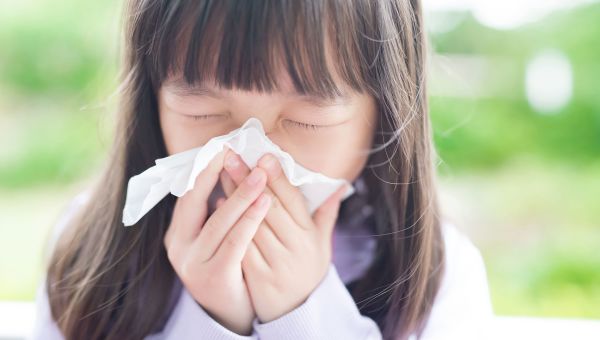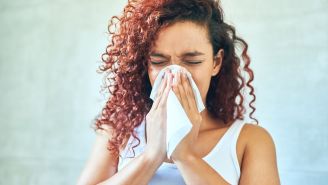7 Cold and Flu Myths That Definitely Aren’t True in Hawaii
Get the facts on the cold and flu and keep your family healthy.

Every year, mainland flu reports surge in winter months with tales of cold weather and runny noses. It can seem like a distant nuisance that Hawaii residents don’t need to worry about, but the flu can still pose a major risk state-wide. There’s no need to panic though; half the things you’ve heard about cold and flu viruses aren’t even true. Learn the facts about the common cold and flu to keep yourself and your family healthy this season.

Myth: The Flu Isn’t That Serious
The flu is no joke. Some people develop symptoms so severe they end up in the hospital. The Centers for Disease Control and Prevention (CDC) estimates, since 2010, the flu has caused between 140,000 and 960,000 hospitalizations and 12,000 to 79,000 deaths each year.
Children under age 5—especially those under age 2—and adults over age 65 are more susceptible to serious illness from the flu. Pregnant women and people with chronic health problems such as asthma, heart disease or diabetes are also at increased risk. Complications from the flu can range from bacterial pneumonia to ear infections, along with sinus infections and worsening of preexisting medical conditions.

Myth: You Can Get the Flu from the Flu Vaccine
Sometimes people come down with the flu soon after they’ve received a flu vaccine. So what gives? For starters, flu vaccines can take up to two weeks to work. If someone becomes ill with the flu, it’s most likely because they were exposed to the virus either before or within two weeks of getting the shot. The most common reaction is redness, swelling and soreness at the injection site, which goes away in about 1 to 2 days.
Also, the flu vaccine doesn’t protect against all flu viruses. It only works against the strains scientists estimate to be the most common in a given year. It is still possible to get sick from another type of virus. Regardless, the best way to protect yourself and others from the flu is to get vaccinated.

Myth: Feed a Cold, Starve a Fever
Fever or no fever, when you’re sick, it's important to maintain a healthy diet and drink plenty of fluids. Think water, juice and hot tea. Even if you’re not feeling hungry, force yourself to eat. Foods cannot prevent you from getting sick, but a big bowl of chicken noodle soup can soothe your sore throat and help keep you hydrated.

Myth: Vitamin C Can Fend Off a Cold
While vitamin C is important for our bodies, research has yet to confirm its effectiveness in preventing colds. There is some evidence that when taken regularly in high doses—greater than 200 milligrams a day (mg/day)—vitamin C may shorten the duration of cold symptoms slightly if taken prior to the onset of symptoms. Two large oranges will give you about 200 mg of vitamin C. The current recommended dietary allowance of vitamin C is 75mg/day for women and 90mg/day for men.

Myth: Healthy People Don’t Need the Flu Vaccine
Your best line of defense against the flu is to get the flu vaccine. The CDC recommends that most people 6 months and older get vaccinated every year. If you have severe allergies, an allergy to eggs or a history of Guillain-Barré Syndrome, you may not be able to get the vaccine.

Myth: A Bad Cold Can Turn Into the Flu
Colds and flu are both viral infections, but they stem from different viruses. A cold will never turn into the flu. While a cold can make you feel as lousy as the flu, they have different symptoms.
Cold symptoms primarily include a runny or stuffy nose and a sore throat. Flu symptoms tend to come on suddenly and are more severe. They may include the symptoms above, along with fever, body aches, fatigue, sore throat, cough, headaches and sometimes vomiting and diarrhea. However not everyone who gets the flu will present with a fever or similar symptoms.
The flu can also lead to pneumonia and other respiratory illnesses, and it typically lasts longer than your run-of-the-mill cold. If you suspect you could be suffering from influenza, make an appointment to see your doctor.

Myth: Hawaii Has a Flu Season
Unlike the Mainland, which has a more definitive flu season that correlates to colder winter months, Hawaii sees flu infections year-round. “But we do see an uptick in disease activity around the winter time,” notes Sarah Park, MD, the head of the Disease Outbreak Control Division for the State of Hawaii in Honolulu. “We generally lag about a month behind the Mainland, so when the Mainland starts talking about a lot of flu activity, then we start to monitor more closely. We generally start seeing our uptick somewhere about 4 weeks after the Mainland.”
Despite not having a flu season, flu vaccines are generally only available in Hawaii at the same time as they would be on the Mainland, roughly fall through early spring. “Our vaccine comes from the same source as the Mainland,” says Dr. Park. The best practice is to get a flu shot early before supplies run out, though Park emphasized that it’s never too late to get your vaccine.
More On


video

article


video


video


video
